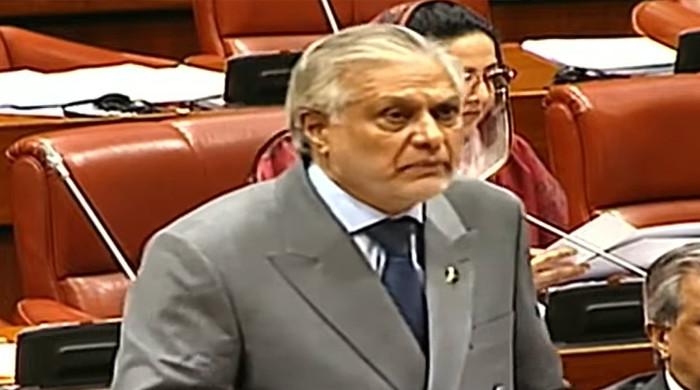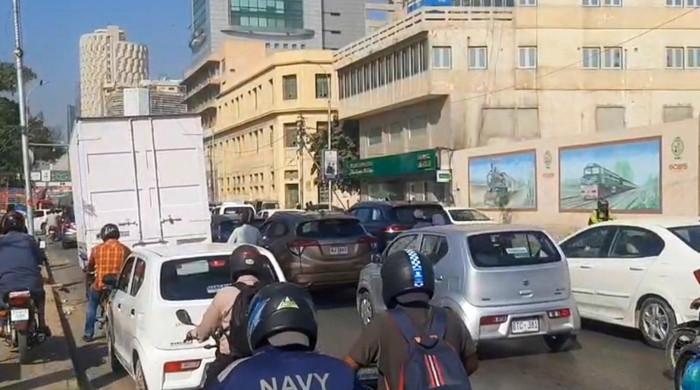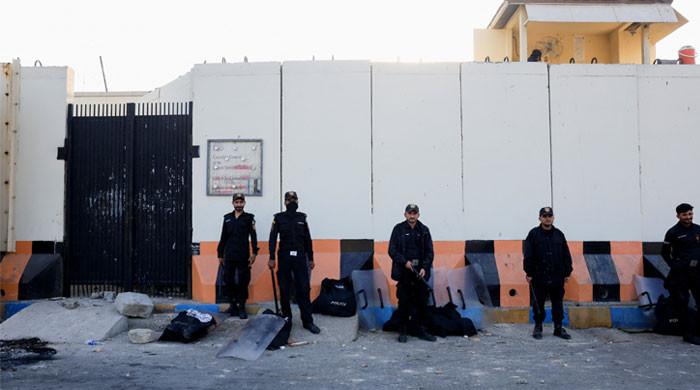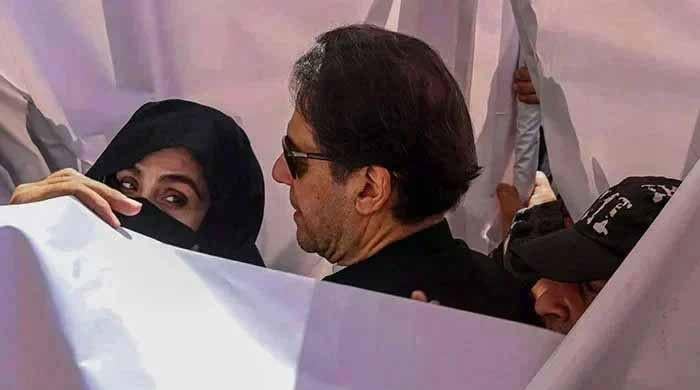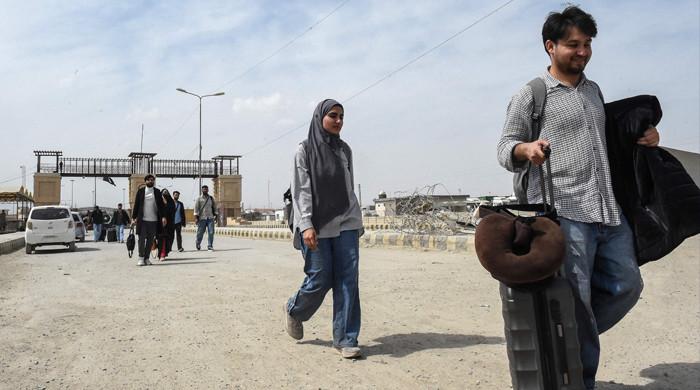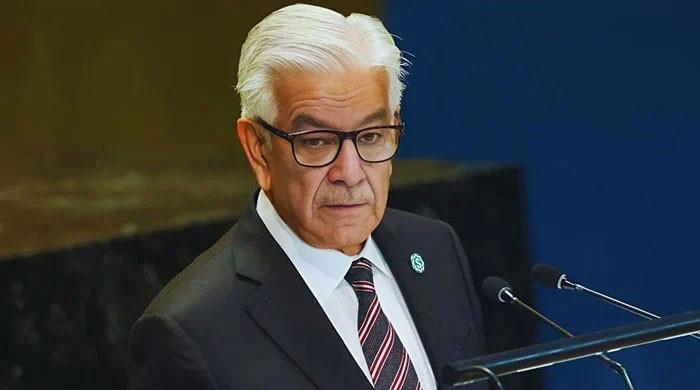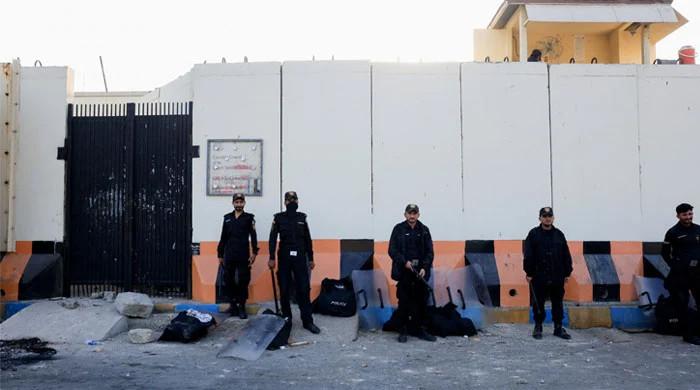FATF bills aimed at curbing terror financing, not political financing: Fawad Chaudhry
Minister rubbishes the opposition's objections regarding the bulldozing of bills through Parliament as ‘childish’
September 17, 2020
Soon after the parliament's raucous proceedings for the day concluded yesterday, Federal Science and Technology Minister Fawad Chaudhry reassured the Opposition, saying that the Financial Action Task Force (FATF) bills passed amid stiff resistance are largely focused on stemming terror financing, not political financing.
“The Opposition parties are worried but they needn’t be. The bills are meant mainly to prevent terror-financing,” Chaudhry said while speaking on Geo News current affairs programme ‘Aaj Shahzeb Khanzada Kay Sath’ on Wednesday evening.
“The law will be applicable to terror-financing alone.”
Fawad sees Opposition's behaviour as 'childish'
He also rubbished the Opposition’s objections regarding the bulldozing of bills through Parliament as ‘childish’, saying the government received ten votes more than the Opposition in an open counting.
During the joint sitting of the two Houses, three FATF-related bills - the Islamabad Capital Territory Waqf Properties Bill, 2020; the Anti-Money Laundering (Second Amendment) Bill, 2020; and the Anti-Terrorism (Third Amendment) Bill 2020 - were passed in order to remove legal hurdles so that the country can come out of the FATF greylist. Besides, five other bills were also passed during the sitting.
Having failed to stop passage of the bills despite a theoretical majority, the opposition parties staged a walkout from the House when amendments moved by PML-N leader Shahid Khaqan Abbasi and Senator Mushtaq Ahmad of the JI were rejected. The opposition benches also lodged a strong protest after the speaker refused to give the floor to the movers of amendments to the bills and Opposition Leader Shahbaz Sharif. The protesting members tore copies of bills and surrounded the speaker’s dais while shouting ‘Parliament Ko Azad Karo’ and ‘Speaker Ko Azad Karo’.
Chaudhry, while speaking on the show, explained that open counting of the votes was held just as the Opposition had asked for. Most of what the Opposition members demanded was baseless, he said, adding the Opposition members only wanted to waste time in order to prolong the proceedings.
Opposition does not want money-laundering to be a cognizable offence: Fawad
The federal minister said the Opposition’s entire focus boils down to two points. He said they want that money laundering should not be declared as a cognizable offence, and secondly, they want to limit the jurisdiction of the National Accountability Bureau (NAB).
“Besides these two points, the Opposition takes no exception to the FATF bills,” he said. The Opposition, by and large, see eye to eye with the government but these two areas are very crucial, he noted.
All the lawsuits pending before courts against Zardari and Shehbaz Sharif pertain to money-laundering, the minister pointed out, adding the Opposition does not want NAB to pursue cases against their leaders. They want also to keep police at bay, he said.
Hence, he continued, the entire protest narrative of Opposition parties is that money laundering should not be legislated on as a cognizable offence.
Replying to a question, the minister stressed the inextricability of NAB from the laws, saying the money laundering act won’t be applicable if NAB's jurisdiction is taken off from it.
The money laundering act is primarily based on security concerns, he clarified.
Detailing the background of the money-laundering act, he said the PML-N government introduced a law in 1991 that stipulated that no question should be raised on foreign remittances streaming into the country. Then, Nawaz Sharif and Zardari took money from Pakistan, sent it abroad and recalled it from there, he said. They also kept a great chunk of their money in foreign countries, he said. Hence, he continued, they are exclusively concerned about the security of their money.
The 1991 law came handy also to the people involved in terror-financing, he said, adding the law had loopholes that allowed the 'kings of the country' to mint money and so other nefarious elements also made the most out of it.
Motorway assault: PM wants increased conviction rate, says Fawad
Replying to a question regarding Prime Minister Imran Khan’s reaction on the Motorway rape incident, the federal minister said the premier took a very clear-cut stand on the issue relating to he punishment of rapists.
He said the PM appreciated some of the suggestions he (Chaudhry) had tabled before him. “I gave a suggestion that rape and gang-rape cases should be investigated by lady police officers. Their male officers may assist them in the process,” he said.
“Secondly, we are currently occupied with an exercise to indigenously prepare DNA kits used in sexual assault cases. It’s because we want them to be inexpensive.”
Thirdly, he said, the conviction rate needs be increased through enhanced capacity for evidence collection.
He said the fourth suggestion concerns the reporting of such incidents, as the PM himself pointed out. He underlined there should be no victim shaming to encourage women so that they get crimes reported.
The premier, he said, highlighted in parliament the two most important points: that there is lack of reporting and a low conviction rate.
The legislative reforms the PTI government is bound to introduce will be based on these two points, he added.





